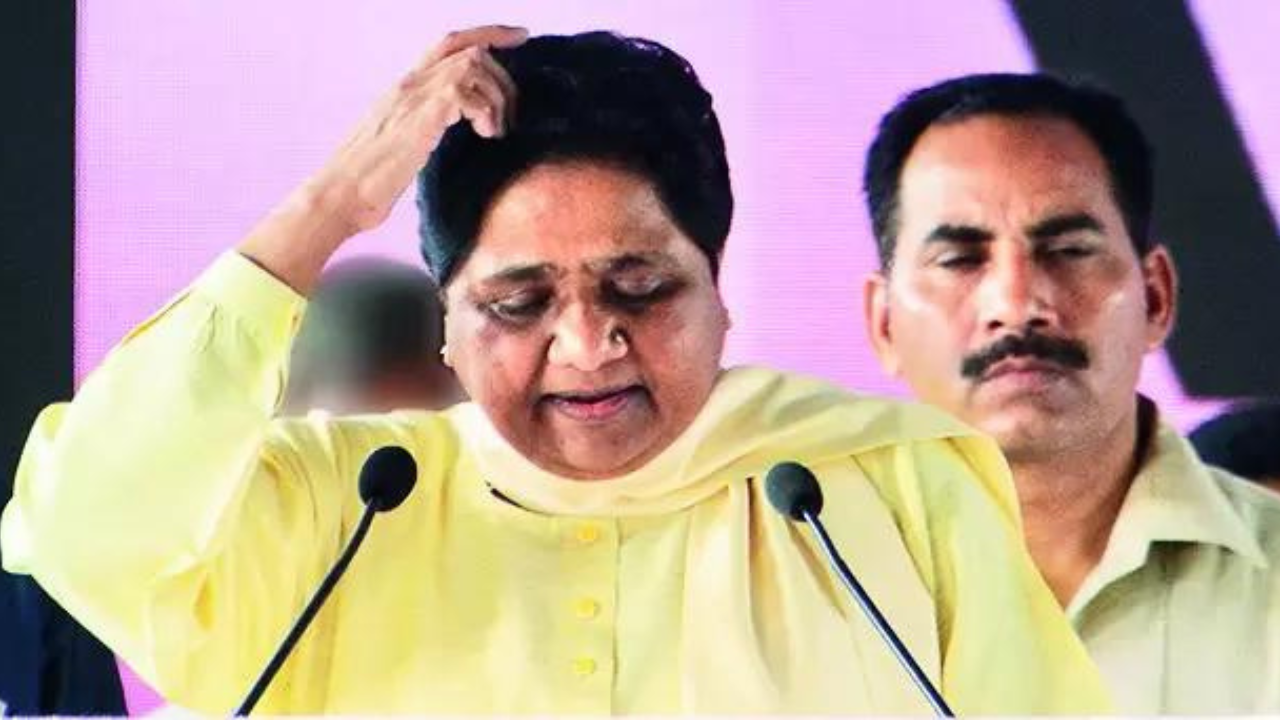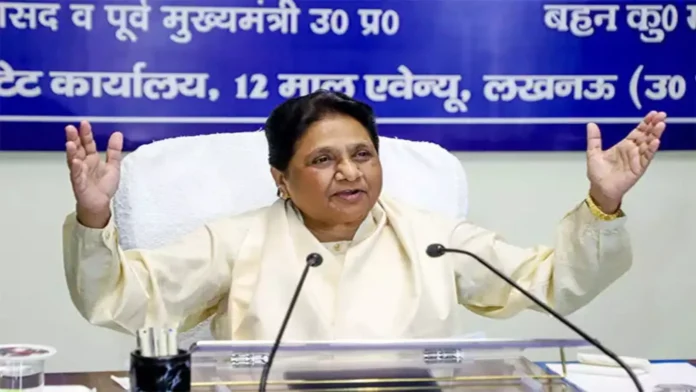Bahujan Samaj Party (BSP) chief Mayawati has firmly denied allegations that a party leader was expelled due to his son’s marriage to the daughter of a Samajwadi Party (SP) legislator. Addressing the controversy, Mayawati clarified that personal relationships do not influence party decisions and reaffirmed the importance of respecting individual freedoms within the BSP.
The Marriage That Sparked The Allegations
The controversy began when reports surfaced that Surendra Sagar, the BSP’s Rampur district president, had been expelled following his son’s marriage to Tribhuvan Dutt’s daughter. Dutt, a Samajwadi Party MLA from Alapur in Ambedkar Nagar, was previously associated with the BSP before joining the SP in the 2022 Uttar Pradesh Assembly elections.
The timing of the marriage raised questions about whether inter-party dynamics influenced the BSP’s decision. However, Mayawati dismissed such claims, attributing Sagar’s removal to internal conflicts rather than personal matters.
Mayawati’s Strong Rebuttal
In a series of posts on X (formerly Twitter), Mayawati provided a detailed explanation of the expulsions. She emphasized that the decision was rooted in internal disputes affecting the party’s functioning.
“The quarrel between former Rampur district president Surendra Sagar and current district president Pramod Kumar had escalated, impacting the party’s operations. Both were expelled, and this has nothing to do with the marriage,” Mayawati stated.
She further reiterated the BSP’s policy of respecting individual choices, saying, “The party is not concerned with the personal relationships of its cadre. People are free to marry anyone they want. It all depends on their thinking. But be cautious of those spreading false propaganda about this.”
)
Wedding Ban Adds Fuel To The Fire
Adding to the controversy, Mayawati also addressed reports regarding the BSP barring members from attending the wedding of former BSP MP Munqad Ali’s son. This decision stemmed from concerns about potential conflicts, as Ali’s daughter, Sumbul Rana, had contested the Meerapur Assembly by-election on an SP ticket.
Explaining the rationale, Mayawati stated, “The BSP also contested the seat. In such a situation, there was a general discussion about possible clashes between people of both parties at the wedding. To avoid this, the party was forced to take this step. But the way it is being publicized is not right.”
BSP’s Balancing Act Amid Political Rivalries
The incidents underscore the complexities of managing internal party discipline while navigating external narratives. The BSP-SP rivalry, particularly in Uttar Pradesh’s politically charged atmosphere, adds layers to these dynamics.
Inter-party marriages, though personal, often become focal points for political speculation, as seen in this case. For the BSP, maintaining a clear boundary between personal freedoms and political decisions is critical to its image and strategy.
Political Opponents React
The controversy has drawn reactions from across the political spectrum. Rivals have criticized the BSP for its handling of these issues, suggesting that the party’s internal conflicts and decisions reflect broader challenges.
However, Mayawati’s direct approach to addressing the controversies has garnered support from her party members, who see her leadership as pivotal during turbulent times.

A History Of Controversies
This is not the first time the BSP has faced scrutiny over its internal decisions. Over the years, the party has had to contend with allegations of authoritarian leadership, infighting, and challenges to its secular image.
Mayawati’s leadership has been instrumental in steering the BSP through such challenges, often with a focus on discipline and clarity in decision-making. Her emphasis on individual freedoms in this instance aligns with the party’s broader commitment to social justice and equality.
The Larger Political Landscape
The BSP’s position in Uttar Pradesh politics has waned in recent years, with diminishing electoral success and internal challenges. Expulsions like those of Sagar and Kumar highlight efforts to address these issues, but they also reveal the difficulties of balancing discipline with the perception of inclusivity.
As the BSP navigates these controversies, its ability to maintain coherence and focus on its core principles will be crucial to its revival. The emphasis on respecting personal choices, as articulated by Mayawati, could play a key role in shaping the party’s approach moving forward.
Looking Ahead
The controversies surrounding the BSP’s recent expulsions reflect the broader challenges of managing a political organization in a highly polarized environment. While Mayawati’s statements aim to quell rumors and reinforce the party’s stance on individual freedoms, the road ahead will likely involve addressing both internal dynamics and external scrutiny.
As Uttar Pradesh’s political landscape continues to evolve, the BSP’s ability to navigate these challenges will be a testament to its resilience and adaptability. Mayawati’s leadership will remain central to these efforts, shaping the party’s future trajectory.

